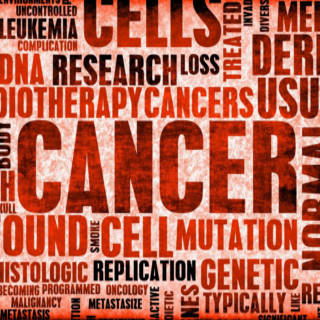Why won’t it ever be curable?
When you consider that worldwide, cancer is one of the leading causes of death and it is something that mankind has known about since Hippocrates was alive (2300 years ago), it is no wonder that we have state-of-the-art medical facilities to treat it and spend millions of dollars a year on cancer research. Despite all of this, we still do not have a cure? Why is it so difficult to treat? Will there ever be a cure?
 In order to understand the dilemmas related to cancer treatments and the possibility of a cure, you first need to understand what cancer is. Cancer is when the cells in your body lose the ability to control growth and they enlarge. Since cancer cells have the same root DNA as your other cells, your body has trouble distinguishing between cancerous cells and normal cells. Unfortunately, due to this, your body’s immune system is unable to fight cancer on its own most of the time. Carcinogenesis, which is the mutation of otherwise healthy cells into cancer cells, is an extremely complicated process. So far, no particular trigger point has been able to be identified. We do know that this process has no less than six steps and that there are hundreds of thousands of different genes collectively responsible for the process. This is what makes cancer so hard to understand, prevent and reverse. Since there are so many types of cancer, it essentially a collective term for hundreds of diseases and each one needs to be solved on its own. Also, the response to treatment varies depending on the patient and the type of treatment. There are numerous kinds, such as radiation therapy, chemotherapy, surgeries, immunotherapy and stem cell therapy. Each person’s body responds differently to each treatment, so this affects not only the effectiveness, but the tolerance level each person has to each type. So, the bottom line is that we aren’t looking for one cure, but hundreds of cures.
In order to understand the dilemmas related to cancer treatments and the possibility of a cure, you first need to understand what cancer is. Cancer is when the cells in your body lose the ability to control growth and they enlarge. Since cancer cells have the same root DNA as your other cells, your body has trouble distinguishing between cancerous cells and normal cells. Unfortunately, due to this, your body’s immune system is unable to fight cancer on its own most of the time. Carcinogenesis, which is the mutation of otherwise healthy cells into cancer cells, is an extremely complicated process. So far, no particular trigger point has been able to be identified. We do know that this process has no less than six steps and that there are hundreds of thousands of different genes collectively responsible for the process. This is what makes cancer so hard to understand, prevent and reverse. Since there are so many types of cancer, it essentially a collective term for hundreds of diseases and each one needs to be solved on its own. Also, the response to treatment varies depending on the patient and the type of treatment. There are numerous kinds, such as radiation therapy, chemotherapy, surgeries, immunotherapy and stem cell therapy. Each person’s body responds differently to each treatment, so this affects not only the effectiveness, but the tolerance level each person has to each type. So, the bottom line is that we aren’t looking for one cure, but hundreds of cures.
Scientists are just now beginning to figure out the genetic code for different types of cancer. Even as we come to understand this portion of the puzzle, we then need to understand how the code is then translated into instructions and how these instructions are turned into proteins that can both sustain life and fuel cancer at the same time. Our environment also plays a big role in how it impacts cancer, but we don’t have a grasp as to exactly how this occurs. We also know that we can’t treat cancer like we can a bacterial infection. With bacteria, we can target the foreign cells with medications (antibiotics), which destroys the cell wall causing the bacteria to die. Since cancer cells are our own cells but mutated, we can’t target them in the same way. All of this information that we don’t know makes it hard to, not only, treat cancer, but to prevent it. We do know that it doesn’t seem to matter where your cancer starts, but how it functions. Also, cancer is so varied and this should shape how we treat cancer and research it. We need to develop new ways of completing studies in order to get proven treatments to patients more quickly.
Unfortunately, there will probably never be a total cure for cancer. This is due to a variety of factors. Our bodies (as a whole group), the environment we live in and cancer, itself, are always changing. Given these facts and that there are many types of cancer, we aren’t just looking for one cure. By understanding more about each type, we have a better chance to develop ways to decrease the pain/weakness that comes with cancer, come up with new treatment options and hopefully get rid of certain symptoms that cancer causes. If we can do all of this, then we have a chance at potentially curing some types, but, most importantly, providing an overall better quality of life for all who are affected by cancer.